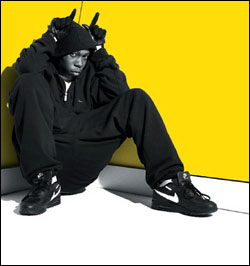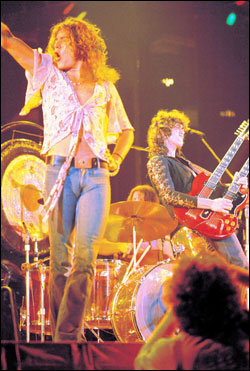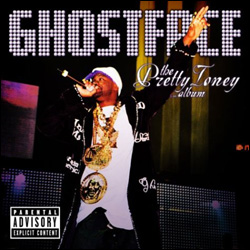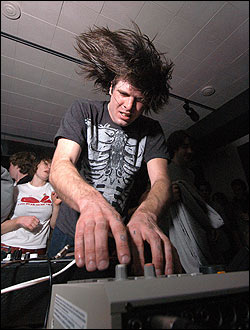BOY IN DA CORNER (XL, U.K.), the debut album of Dizzee Rascal, is a very East London album. I’ve never been there (the Weekly turned down my field research request), but like those other great musical dystopias-cum-theme-parksJuvenile’s Magnolia, N.W.A.’s Compton, the Wu’s ShaolinDizzee’s Ends exert a fascination born out of riotous social collapse leavened with hi-jinx and alpha-male boasting. Nothing new then, except maybe only the Wu would admit, as Dizzee does toward the album’s finale, “If I had the guts to end it all, I would.”
U.K. garage, East London’s “urban” sound of choice, was Dizzee’s proving ground, where pirate radio whipped him into England’s best-ever MC. But whatever U.K. garage wasdeep house cut with Timbaland-style jitter-funk?all the pungent sonic cliches have been stripped away here. Only a vague “context” remains: U.K. garage was the sound that finally, completely freed the motherland from the yoke of looking to the former colony for beats.
The shift from the 24-hour party people of rave to U.K.G.’s coke-and-cookies luxury music was born out of the brief economic boom period at the turn of the millennium, from ex-ravers and junglists desperate to escape their reality. Dizzee is one of the kids barred from U.K.G. culture by its restrictive, ironic “dress smart” policies. A young thug alternative to U.K.G.’s vision of urban culture was inevitable, even if only because a post-rave “generation” can now equal a summer.
But this isn’t a hip-hop record, despite the fact that it foregrounds beats and rhymes. (Big dealso a does a Celine Dion record.) Whatever this stuff is being calledgrime garage, U.K. bounce, or just garage rapthe semantic confusion reflects the fact that this music has yet to arrive at a finished version of itself. This makes grime garage intriguing, occasionally startling, and very frustrating. Those wanting spoon-fed party knockers should stick with Dr. Dre.
MAYBE THE U.K. bounce tag is best since it often sounds like cheap American southern bounce hip-hop. Album closer “Do It” has a chiming synth hook that’s almost a straight lift from a Juvenile track. “Brand New Day” is ghetto gamelan ࠬa Ja Rule’s “Between Me and You.” But Dizzee also brings in U.K.G.’s xylophone ripples, jazzy jungle’s aquatic gurgles, and Jamaican dancehall’s so-stiff-they’re-stanky funkcrusher beats. Plus grime garage’s inimitable bass sounds, which are kind of hard to describean electric jug skipping up and down octaves, maybe? Whatever, they’re probably the only low-end you can play along with on an empty Pepsi bottle.
Then there’s Dizzee’s flow. It’s not just the Britishness (imagine a cross between Ghostface Killah and Paddington Bear), but the complete lack of U.S. hip-hop’s mix of me-against-the-world survivalism and nouveau riche triumphalism. Can you imagine Jay-Z saying, “Being a celebrity don’t mean shit to me”? Above and beyond the sonic invention and strings of brilliant one-liners, the pragmatism, the this-is-how-it-is-why-exaggerate? vibe may be the most British thing about it. Without getting too armchair sociologist, this record is the product of a U.K. that’s traded collective socialism for American hyper-capitalism. Or, as the man himself puts it: “Queen Elizabeth don’t know me/How can she control me/When I live street/And she lives neat?”
IN A 1995 interview, Tricky averred: “I’m just telling the truth that I’m confused, I’m paranoid, I’m scared, I’m vicious, I’m spiteful.” On “Do It,” Dizzee warbles the intro like a wounded bird: “Friends don’t understand us, adults don’t understand us.” It’s tempting to compare Boy in da Corner with Tricky’s Maxinquaye. It’s certainly as bleak a record in places as England has yet produced (cf. the safe-sex advert-cum-misogynist rant “Jezebel”). But Dizzee is too funny for the comparison to really stick. It’s hard to imagine Tricky lisping stuff like “Came out barefoot like Fred Flintstone” and “Dizzee run things like Idi Amin.”
There’s a lot of lines like that. There’s a lot of words, period. Dizzee’s patois crunks up U.S. ghetto slanguage, Jamaican dancehall’s country grammar, and Streets-style geezerisms. Which is great, since half the fun of pop music is doing the unpacking. Or as Edmund Burke, another English language O.G. (and the first rock critic, according to my historian pal Mark Sinker), put it: “A clear idea is a little idea.” Plus Dizzee can cold rock a party better than any MC currently operating on either side of the Atlantic. (Cf. “Fix Up Look Sharp,” which disinters the brontosaurus stomp of Billy Squire’s ancient “Big Beat.”)
Boy in da Corner is not a perfect album: Drags a bit in the middle, lyrical content gets recycled from track to track, etc. But it’s always an interesting album. It’s tangled, messy, punchy, and most intriguingly, it doesn’t resolve itself. Unlike the Streets’ Original Pirate Material, the inevitable point of comparison (though Dizzee can rhyme rings around Mike Skinner, a vocal Rascal fan), there aren’t really any anthems here: Garage rap still awaits its Sham 69. But the best tracks alternate between a punch to the solar plexus and hiding their crocodile tears in the drizzle. Stuck in East London, forever standing on the verge of getting on with it, Dizzee remains himself: Confused, paranoid, scared, vicious, and spiteful, as well as sardonic, witty, charming, and menacing, a voice in the wilderness, a host in the machine.








